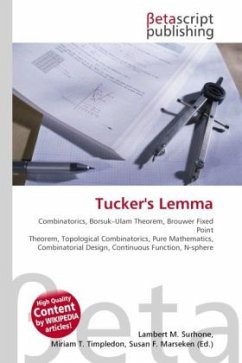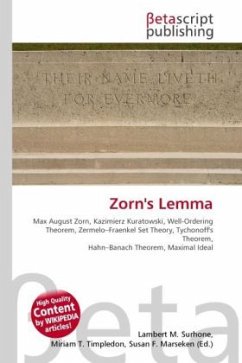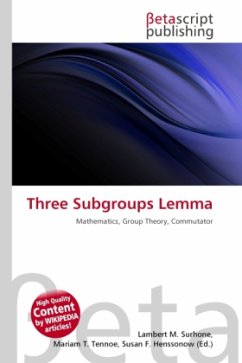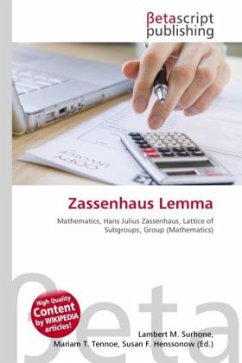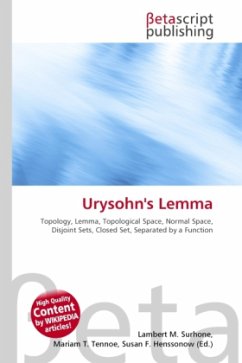
Tucker's Lemma
Versandkostenfrei!
Versandfertig in 6-10 Tagen
23,99 €
inkl. MwSt.

PAYBACK Punkte
12 °P sammeln!
High Quality Content by WIKIPEDIA articles! In mathematics, Tucker's lemma is a combinatorial analog of the Borsuk Ulam theorem. In mathematics, the Borsuk Ulam theorem states that any continuous function from an n-sphere into Euclidean n-space maps some pair of antipodal points to the same point. (Two points on a sphere are called antipodal if they are in exactly opposite directions from the sphere's center.) The case n = 2 is often illustrated by saying that at any moment there is always a pair of antipodal points on the Earth's surface with equal temperatures and equal barometric pressures....
High Quality Content by WIKIPEDIA articles! In mathematics, Tucker's lemma is a combinatorial analog of the Borsuk Ulam theorem. In mathematics, the Borsuk Ulam theorem states that any continuous function from an n-sphere into Euclidean n-space maps some pair of antipodal points to the same point. (Two points on a sphere are called antipodal if they are in exactly opposite directions from the sphere's center.) The case n = 2 is often illustrated by saying that at any moment there is always a pair of antipodal points on the Earth's surface with equal temperatures and equal barometric pressures. This assumes that temperature and barometric pressure vary continuously. The Borsuk Ulam theorem was first conjectured by Stanis aw Ulam. It was proved by Karol Borsuk in 1933.



